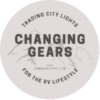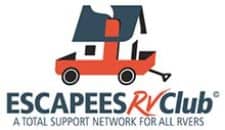If you’re hiring an independent service center or mobile RV service technician to repair your RV under warranty, you need to do your homework! Unfortunately, RV warranties and insurance policies can be a paperwork labyrinth, and you don’t want to get stuck wandering the halls of disclaimers, deductibles, and fine print.
There isn’t a single kind of RV warranty. There are at least three: RV factory warranties, 3rd Party/OEM warranties, and extended warranties. They all have their own rules for independent repair.* Here’s some information on different types of RV warranties, and the questions you should ask so you don’t get stuck with a surprise bill!
RV Factory Warranties

Almost all new RVs sold by a dealership will come with a Factory warranty from the RV Manufacturer. The standard Factory warranty is 1- or 2 years (although recently some companies have launched hybrid warranties of 1-Year Limited/3-Year Structural).
This is commonly called your “bumper-to-bumper warranty,” although that phrase is a bit misleading. It doesn’t cover nearly as much as you think, and the warranty may require that you return your RV to the dealership from where you purchased it!
That’s some important fine print, so we’ll repeat it: Many RV manufacturers will only honor their Factory warranties if you take your RV to their authorized dealership network, or sometimes only to the dealership you originally purchased from (if you’re within a certain distance).
3rd Party & OEM Warranties
The Factory warranty doesn’t cover everything in your RV. The coach has many OEM warranties that cover common third-party appliances, such as refrigerators, ranges, furnaces, air conditioners, shower heads, exhaust fans, windows, axles, etc. These OEM warranties are usually 1- or 2 years in length, too.
The truth is that a lot of what breaks down in an RV is covered by its own OEM warranty, not the factory warranty you heard touted at the sales dealership.
It’s important to realize that liability is based on the root cause of the problem! There is usually some “finger-pointing” until one party accepts liability. Here’s an example:
- If your Dometic refrigerator fails because the circuit board dies within the first year, it’s Dometic’s problem.
- If your refrigerator fails because it wasn’t installed properly, it’s the RV manufacturer’s problem.
- If your refrigerator fails because you didn’t follow (or can’t prove that you followed) the owner’s instructions in the Owner’s Manual, it’s your problem.
Usually, OEM warranties can only be processed by authorized service centers or technicians. Rules vary by the OEM.
- Some OEMs only require the service center to register with proof of insurance, tax ID, etc.
- Other OEMs will require technical training to repair or replace certain systems.
- And still other OEMs won’t consider an RV repair facility “authorized” regardless of technical qualifications unless they A) are an RV dealer that retails their brands and/or B) stock thousands of dollars worth of the OEM’s parts.
Aftermarket & Extended “Warranties”
After the Factory warranty expires, many RV owners choose to purchase an aftermarket “warranty” or extended service plan (ESP), also called an extended service contract (ESC). These ESPs are available in multiple types, such as Exclusionary, Comprehensive, Powertrain Only, etc.
These aftermarket RV warranties usually provide protection after the Factory and/or OEM warranties expire. Sometimes, your dealer may even offer you an ESP even when your RV is brand new, arguing that your premiums will be lower than if you wait until the factory warranty expires.
Extended warranty providers include:
- Wholesale Warranties
- America’s RV Warranty
- Eagle Vision RV
- And many others!
Be Your Own Advocate!
You must be your own advocate! It is your responsibility to understand the coverage, terms, and conditions of your policy. Normally, you will be responsible for any cost of any portion of the claim that is denied or not covered under your policy. Contact your provider before scheduling service so you know what’s covered and what isn’t.
Most warranty claims will require at least two visits – one for diagnosis, and one for repair after the estimate is approved and the parts are ordered.
Many times, your warranty will NOT cover the entire cost of the repair! In particular, RV manufacturer and appliance OEM warranties can be rather stingy, paying out a predetermined flat rate regardless of the circumstances, and your RV service center may ask you to cover the difference.
Sometimes, a warranty claim can take longer than if you paid out of pocket. This is because of additional paperwork, repair approval, parts shipping, etc.
>>> READ MORE: Why Does Getting Your RV Repaired Take So Long?
Top Questions to Ask Your Warranty Policy Provider
Before you hire any service center or repair technician to complete RV repair work under warranty, you should clearly understand the payment policies and restrictions of A) the repair facility and B) your warranty provider.
Here are our top questions to ask your policy provider about RV warranty repair work:
- Does your policy allow for repairs completed at independent repair facilities? If so, do they require proof of commercial insurance or technical certification?
- Does your policy cover mobile RV repair services? If so, does it have special constraints, such as whether your RV is disabled or broken down while traveling?
- Does your policy cover service call fees or mileage charges? Is there a maximum payout per visit or per claim?
- Does your policy pay for parts and supplies at actual cost, MSRP, or some other value? Or will the parts be shipped directly from the OEM?
- Does your policy cover time for diagnostics? If so, is it actual time-on-task or flat rate?
- Does your policy cover the actual labor rate, the national average labor rate, or a predetermined/flat labor rate?
- Does your policy require a formal estimate for authorization, or are you allowed to submit receipts for reimbursement (aka, pre-authorization)?* If so, is there a time limit or monetary maximum?
>> READ MORE: 10 Questions to Ask Your Custom RV Builder (Before It’s Too Late!)
*Republished with permission from Sterling RV Services LLC.
Andy Herrick is a blogging nerd, #8 Enneagram, wannabe bread baker, INTJ, RV industry professional, and small business entrepreneur. He can be found hanging out with his lovely wife and family, skiing, cycling, climbing, hiking, and convincing anyone who will listen why dogs aren’t really that great of pets. Also, he runs this website.








